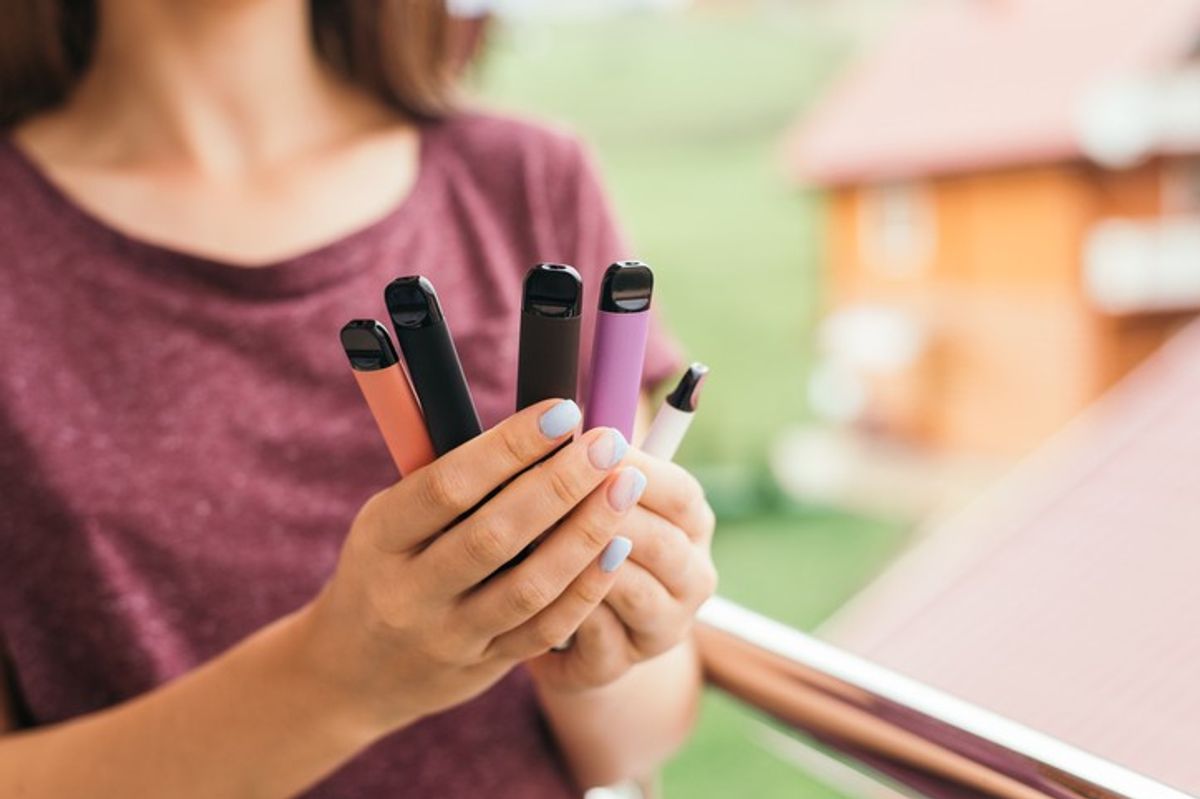By John Wimperis, Local Democracy Reporter
Calls for a local ban on disposable vapes in Bath and North East Somerset have been rejected by a key public health board.
The Local Government Association raised concerns about the health and environmental impact of disposable vapes in the summer and called for a ban. Disposable vapes contain a lithium battery which can catch fire if not disposed of properly.
Locally, Bath and North East Somerset councillor Ruth Malloy led the calls for a local ban on disposable vapes, warning a full council meeting on July 20: “Although e-cigarettes were originally developed as an aid to help smokers break the habit, the trend now seems to be that young people and even children are starting to vape without ever having smoked cigarettes.”
But the call for a complete ban was overwhelmingly rejected by the district’s health and wellbeing board, which draws together local health leaders in organisations across Bath and North East Somerset, on September 26.
Health protection officer Ruth Sampson warned against mixed messaging, adding that: “We know that vaping is supporting a lot of adult smokers to stop. If we ban disposable vapes, will we see an increase in youth smoking behaviour.”
But she added: “We can clearly see that they are marketed in a way that’s attractive to children. […] Vapes should only be used by adult smokers wanting to quit.”
Figures from Action on Smoking and Health show that the vast majority of vape users are smokers or ex-smokers. But the number of young people using them is increasing. In 2023, 20 per cent of 11-17 year olds had used a vape at least once — up from 16 per cent in 2022.
But it is still mainly young people who smoke that are using them frequently. 88 per cent of 11-17 year olds who do not smoke have also never used a vape, while nine percent have tried them once or twice, and less than one percent use them more than once a week.
Meanwhile most 11-17 year olds who smoke or used to smoke have used vapes. 36 per cent of smokers in that age range use them more than once a week, along with 26% of ex-smokers.
Sampson added that Bath and North East Somerset Council commissions a stop smoking service which uses vapes to get people off tobacco. Although it is mainly focussed on reusable vapes, disposable vapes are offered to some vulnerable groups of smokers, such as pregnant women. The council also intends to sign up for the government’s ‘swap to stop’ programme which offers free vape kits to smokers wanting to stop.
Alison Born, the council’s cabinet member for adult services, said: “I have got lots of concerns about disposable vapes and the fact that so many young people are using them.” Commenting on stop smoking services, she said: “They were set up to stop people smoking. It feels as if they are encouraging people to get their nicotine another way.”
Sampson insisted that vapes only contained “clean” nicotine without the additional harmful substances in tobacco products, and that they were only offered for a set amount of time to help people transition from smoking.
At an informal ‘show of hands’ to test the board’s mood, only two of the almost 20 board members present supported a complete ban. Chair Paul May said: “I think that what we will do as a board is we will keep this under review, but it is something that is a major social issue.”
Speaking after the board meeting, Malloy said: “I’m grateful that the conversation will continue.” Although she added that she was a “bit disappointed” with the vote.
She added that she thought the approach to vapes taken in New Zealand was a good “middle way.” In New Zealand, vapes are required to have removable or recycle batteries; sale is restricted near schools and community meeting places; and there are restrictions on flavour labelling.
“Liberals never want to ban anything in principle. At the same time, I think its actually protecting, first of all, young people’s health — I worry about the ones that have never smoked. And then the environment,” Malloy said.
(Local Democracy Reporting Service)


